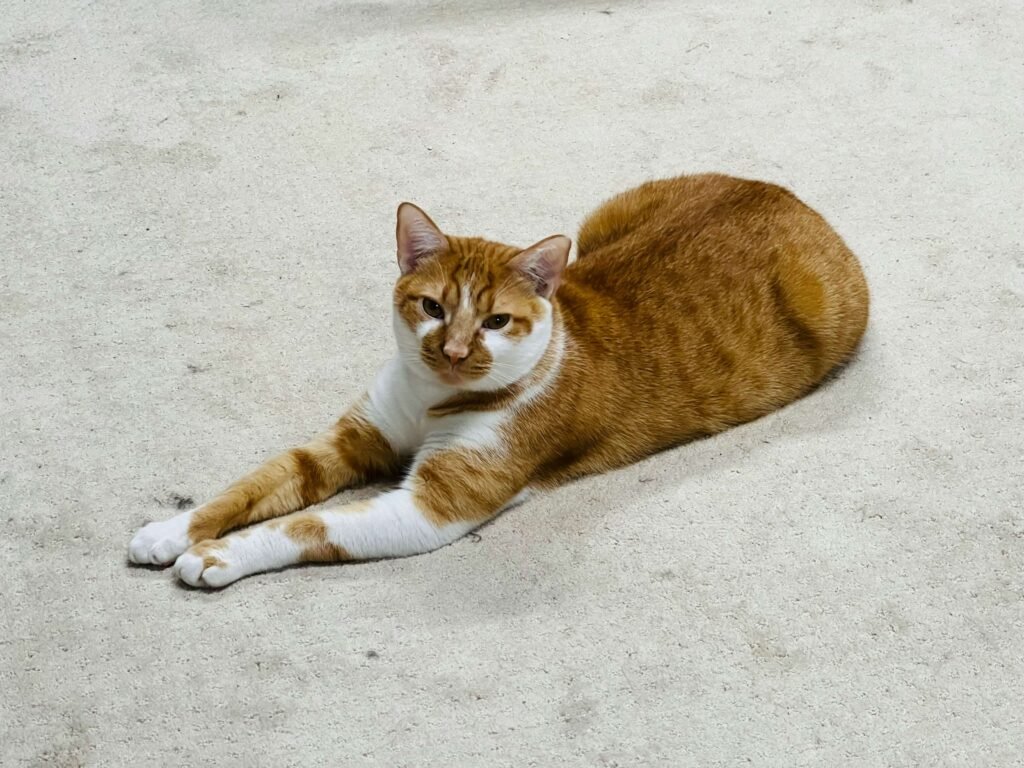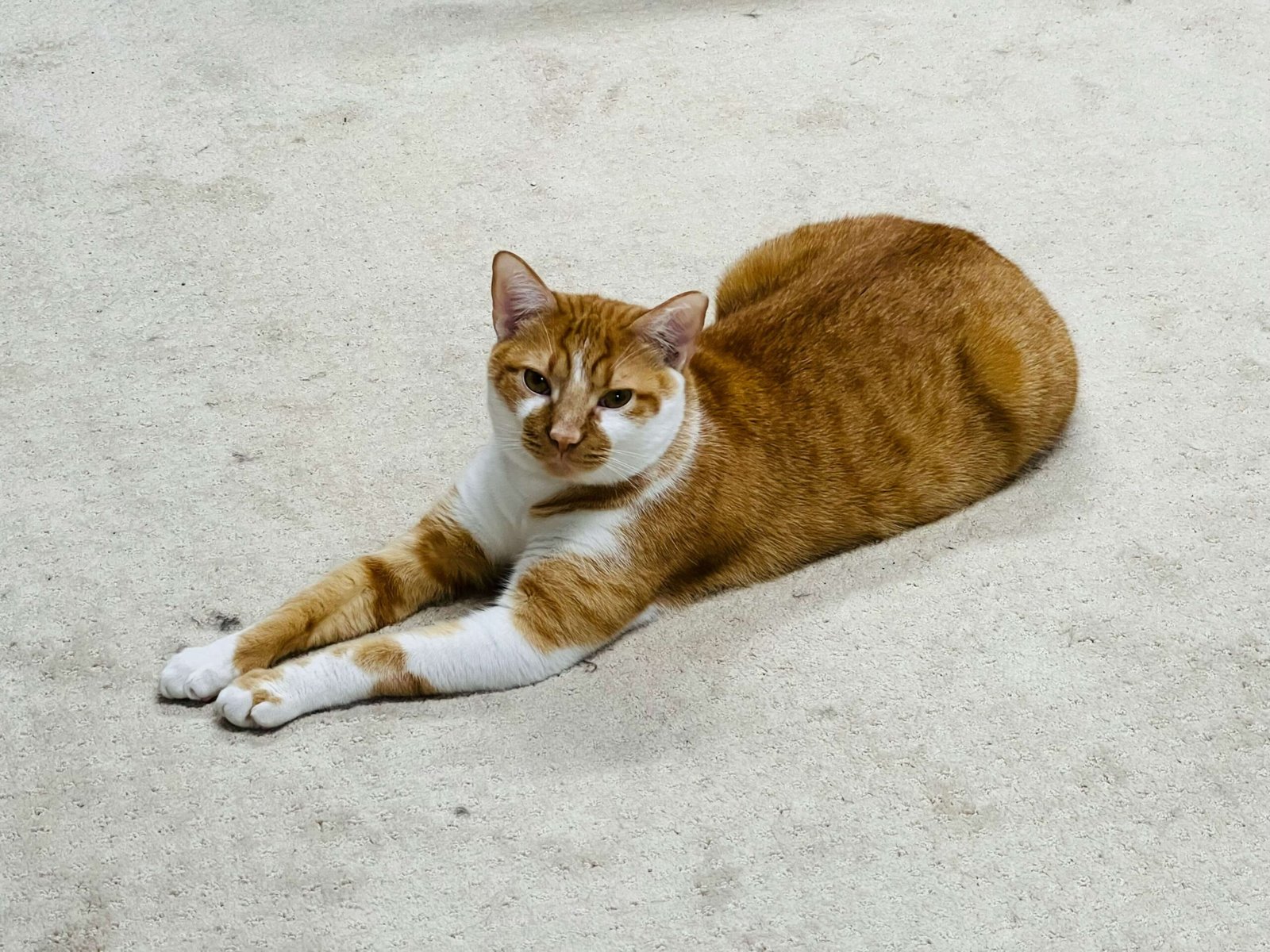Why Does My Cat Watch Me Poop? Decoding This Curious Behavior
If you’ve ever wondered why your cat insists on being your bathroom buddy, you’re not alone. Many cat owners find themselves puzzled—or even slightly unnerved—when their feline companion follows them into the bathroom and watches them poop. Is it a sign of affection, curiosity, or something else entirely? While this behavior might seem odd to us, it actually has roots in your cat’s instincts, social dynamics, and unique bond with you.
In this blog post, we’ll explore the reasons behind this quirky habit, how to interpret your cat’s intentions, and whether you should encourage or discourage it. By the end, you’ll have a clearer understanding of why your cat is so fascinated by your private moments—and what it says about your relationship.
Possible Reasons Your Cat Watches You Poop
Cats are naturally curious creatures, but their interest in your bathroom habits goes beyond simple nosiness. Here are some plausible explanations for why your cat feels compelled to observe you during such a personal activity.
Curiosity About Human Behavior :
Cats are highly observant animals, and they’re often intrigued by the routines and actions of their human companions.Bonding and Social Connection :
In a cat’s mind, staying close to you—even in the bathroom—strengthens the bond between you two.Instinctual Vigilance :
Wild cats often monitor their surroundings closely, and your bathroom may feel like a vulnerable space where they need to keep an eye on things.Guarding Their Territory :
Cats are territorial creatures, and they may view the bathroom as part of their domain that needs protection.Seeking Attention or Playtime :
If your cat associates the bathroom with interaction, they might follow you there hoping for engagement or affection.
While this behavior can feel intrusive, it’s important to remember that your cat isn’t judging you—they’re simply expressing their natural instincts and attachment to you.
Signs Your Cat Is More Than Just Curious
Sometimes, a cat’s interest in watching you poop may stem from deeper emotional or behavioral motivations. Here are some signs that your cat’s behavior could be linked to something beyond mere curiosity.
Excessive Following Around the House :
If your cat constantly trails you everywhere, they may be seeking reassurance or struggling with separation anxiety.Vocalizing During Bathroom Visits :
Meowing or chirping while watching you could indicate excitement, stress, or a desire for attention.Blocking the Door or Standing Guard :
This behavior suggests your cat views the bathroom as a place that requires their protective presence.Pawing at the Door or Acting Restless :
Restlessness outside the bathroom might mean your cat feels uneasy when separated from you, even briefly.Behavioral Changes After Moving or Stressful Events :
A recent move, new pet, or other changes could heighten your cat’s need to stay close and monitor your activities.
Understanding these signs can help you determine whether your cat’s behavior is harmless curiosity or a response to underlying stress or attachment issues.
Check this guide 👉Why Does My Cat Eat Everything? Best 7 Behavior Tips!
Check this guide 👉Why Do Cats Rub Against You? Best 7 Expert Tips!
Check this guide 👉Why Do Cats Lick Each Other? Best 7 Expert Tips!

Why Cats Watch You Poop | What You Can Do About It |
|---|---|
Curiosity about routines | Provide mental stimulation through toys or puzzles. |
Strengthening the bond | Spend quality time together outside the bathroom. |
Instinctual vigilance | Create a safe, predictable environment for your cat. |
Territorial instincts | Reinforce positive associations with shared spaces. |
Seeking attention | Reward desired behaviors with treats or playtime. |
How to Encourage Healthy Boundaries
If your cat’s habit of watching you poop becomes overwhelming, there are ways to gently redirect their behavior without damaging your bond. Here are some strategies to establish healthier boundaries.
Close the Bathroom Door :
Training your cat to respect closed doors can give you privacy while teaching them appropriate limits.Provide Distractions :
Leave interactive toys or a scratching post outside the bathroom to occupy your cat during your visit.Create a Safe Space for Them :
Designate a cozy area nearby where your cat can relax instead of following you into the bathroom.Reward Independent Behavior :
Praise or reward your cat when they choose to stay in another room rather than joining you.Gradual Desensitization :
Slowly acclimate your cat to spending time apart from you in small increments to reduce clinginess.
With patience and consistency, you can guide your cat toward respecting your personal space while maintaining a strong connection.
The Role of Feline Psychology in This Behavior
To fully understand why your cat watches you poop, it’s helpful to delve into their psychology and evolutionary background. These insights shed light on their motivations and strengthen your ability to respond appropriately.
Pack Mentality vs. Solitary Nature :
Unlike dogs, cats aren’t pack animals, but domestication has made them more inclined to form close bonds with humans.Observational Learning :
Cats learn by observing their environment, including your daily habits, which explains their fascination with your routines.Survival Instincts :
Monitoring food sources, elimination areas, and potential threats is ingrained in feline behavior.Emotional Attachment :
Cats often see their owners as parental figures, leading them to seek proximity in unfamiliar or vulnerable situations.Routine-Oriented Mindset :
Cats thrive on predictability, and any deviation from their expected routine can spark curiosity or concern.
By recognizing these psychological factors, you can better appreciate your cat’s perspective and respond in a way that aligns with their natural tendencies.
How Cats Perceive Bathroom Spaces
Cats have a unique way of interpreting spaces, including the bathroom. Their perception of this area can influence why they feel drawn to it and what it represents in their minds. Here are some insights into how cats view bathrooms:
Bathrooms as Safe Zones :
Bathrooms often have limited entry points and confined spaces, which can make cats feel secure and protected.Fascination with Water Sounds :
Running water from sinks or toilets may intrigue cats, as they associate water movement with freshness and cleanliness.Smell Sensitivity :
The distinct scents in bathrooms, such as soap or cleaning products, can pique their interest due to their highly developed sense of smell.Reflections in Mirrors :
Cats may be captivated by mirrors, mistaking their reflections for another cat or object worth investigating.Cool Surfaces for Comfort :
Tile floors and countertops provide cool surfaces that cats enjoy lounging on, especially in warmer climates.
Understanding these perceptions helps explain why your cat might see the bathroom as an appealing place—and why they want to join you there.
Ways to Redirect Your Cat’s Attention
If you’d prefer your cat not accompany you to the bathroom, redirecting their focus can be an effective strategy. Here are some practical tips to keep them entertained elsewhere:
Interactive Toys :
Leave puzzle feeders or battery-operated toys outside the bathroom to engage your cat mentally and physically.Scheduled Playtime Beforehand :
Tire your cat out with active play sessions before entering the bathroom to reduce their curiosity about your activities.Treat Dispensers :
Use treat-dispensing toys to reward independent behavior while keeping them occupied in another room.Cat Trees Near the Door :
Place a tall cat tree or perch near the bathroom door so they can observe from afar without needing to follow you inside.Calming Music or Sounds :
Play soft music or nature sounds in another part of the house to create a soothing atmosphere that draws them away.
By offering alternatives and enriching their environment, you can gently guide your cat toward healthier habits without causing stress.
Common Misconceptions About This Behavior
There are several myths surrounding why cats watch us poop, leading to misunderstandings about their intentions. Let’s clarify some common misconceptions to better interpret your cat’s actions:
Myth: Cats Are Judging You :
Contrary to popular belief, cats aren’t critiquing your behavior—they’re simply observing out of curiosity or instinct.Myth: Only Clingy Cats Follow You :
Even independent cats may follow you into the bathroom due to territorial instincts rather than attachment.Myth: It’s a Sign of Dominance :
Watching you doesn’t mean your cat sees themselves as “in charge” but rather as part of your shared routine.Myth: Cats Hate Being Alone :
While some cats dislike solitude, others follow you purely out of habit or interest, not loneliness.Myth: All Cats Do This :
Not all cats exhibit this behavior—it depends on individual personality, upbringing, and environment.
Dispelling these myths allows you to approach your cat’s behavior with greater empathy and understanding, fostering a stronger bond between you both.
Frequently Asked Questions About Cats Watching You Poop
Is it normal for my cat to watch me poop?
Yes, it’s relatively common and stems from curiosity, bonding, or instinctual behaviors.
Should I be concerned if my cat follows me everywhere?
Not necessarily, but excessive clinginess could indicate anxiety or a need for reassurance.
How can I stop my cat from coming into the bathroom?
Start by closing the door consistently and providing distractions or rewards for staying outside.
Does my cat think I’m vulnerable when I poop?
Possibly. Cats may perceive bathroom activities as moments when you’re less alert and feel the need to “protect” you.
Could this behavior be a sign of illness?
Unlikely, unless accompanied by other unusual symptoms like lethargy or aggression. Consult a vet if unsure.
Final Thoughts: Embracing Your Cat’s Unique Personality
In conclusion, your cat’s habit of watching you poop is far from random—it’s rooted in their instincts, social nature, and deep connection to you. While it might feel strange or inconvenient, this behavior reflects their trust and curiosity, making it a testament to the unique bond you share. By understanding the reasons behind it and implementing gentle redirection techniques, you can strike a balance between respecting your privacy and nurturing your cat’s well-being. Remember, every cat is different, and embracing their quirks is part of the joy of being a pet parent. So next time your furry friend joins you in the bathroom, take it as a compliment—they just want to be close to you!
Dog Tapeworm Life Cycle: Best 7 Expert Tips! – Learn how tapeworms infect dogs, spot symptoms, and break the cycle with expert prevention strategies.
Anxious Cat Body Language: Best 7 Expert Tips! – Learn to spot signs of stress, understand triggers, and help your cat feel safe and relaxed.
Anxious Dog Body Language: Best 7 Expert Tips! – Learn to spot signs of anxiety, respond effectively, and help your dog feel safe and secure.
Is Breeding Dogs Bad? Best 7 Expert Tips! – Explore the ethics, benefits, and risks of dog breeding to make informed decisions for a better future.





